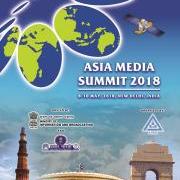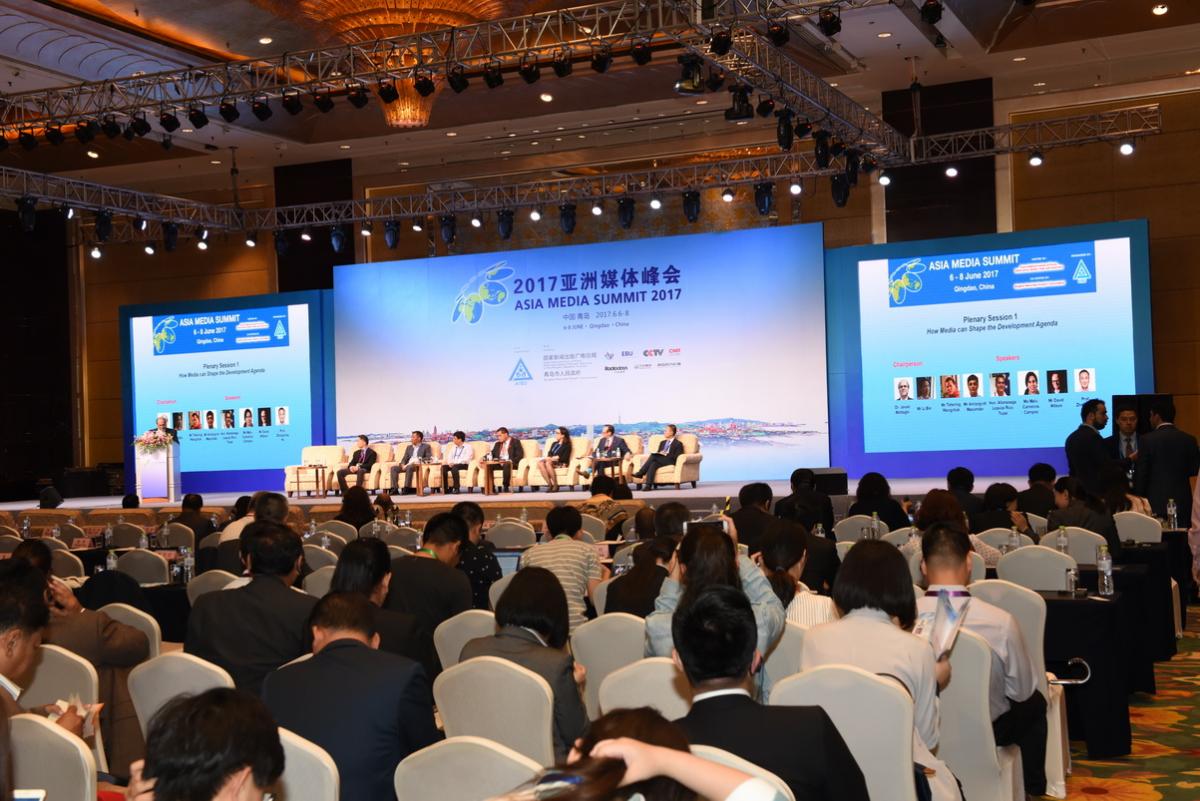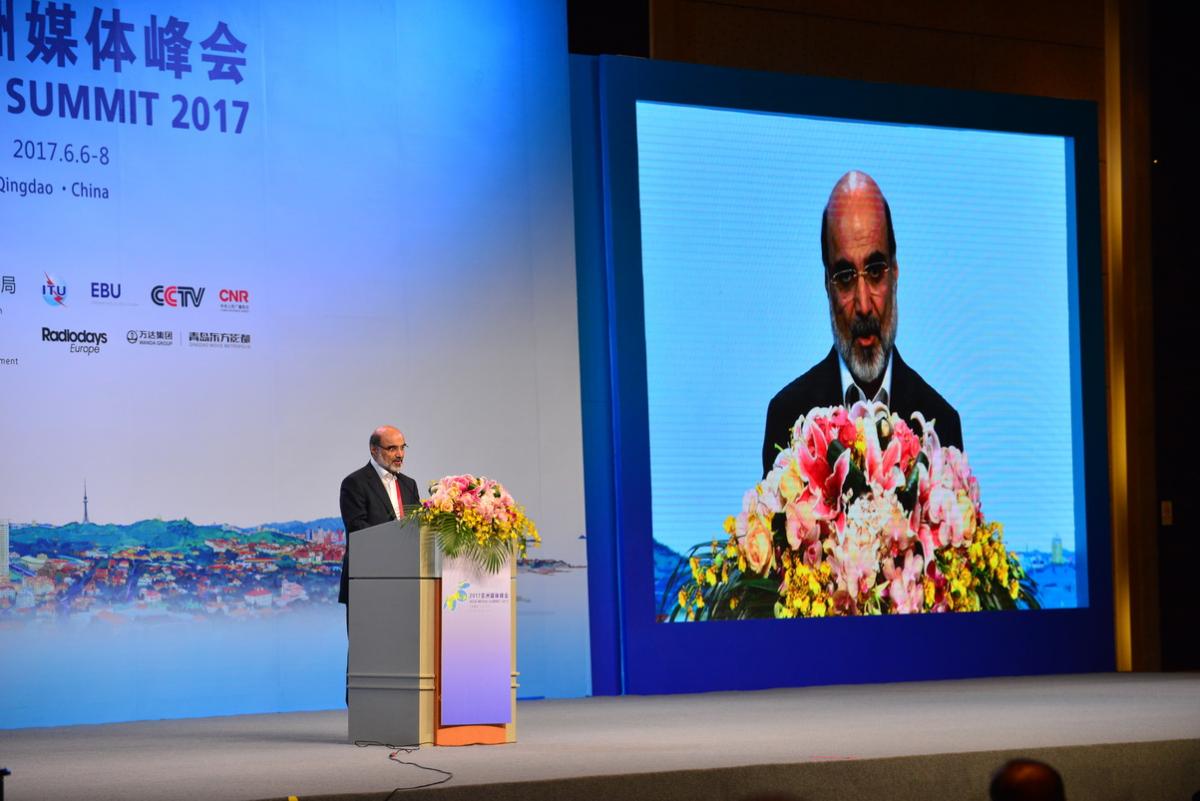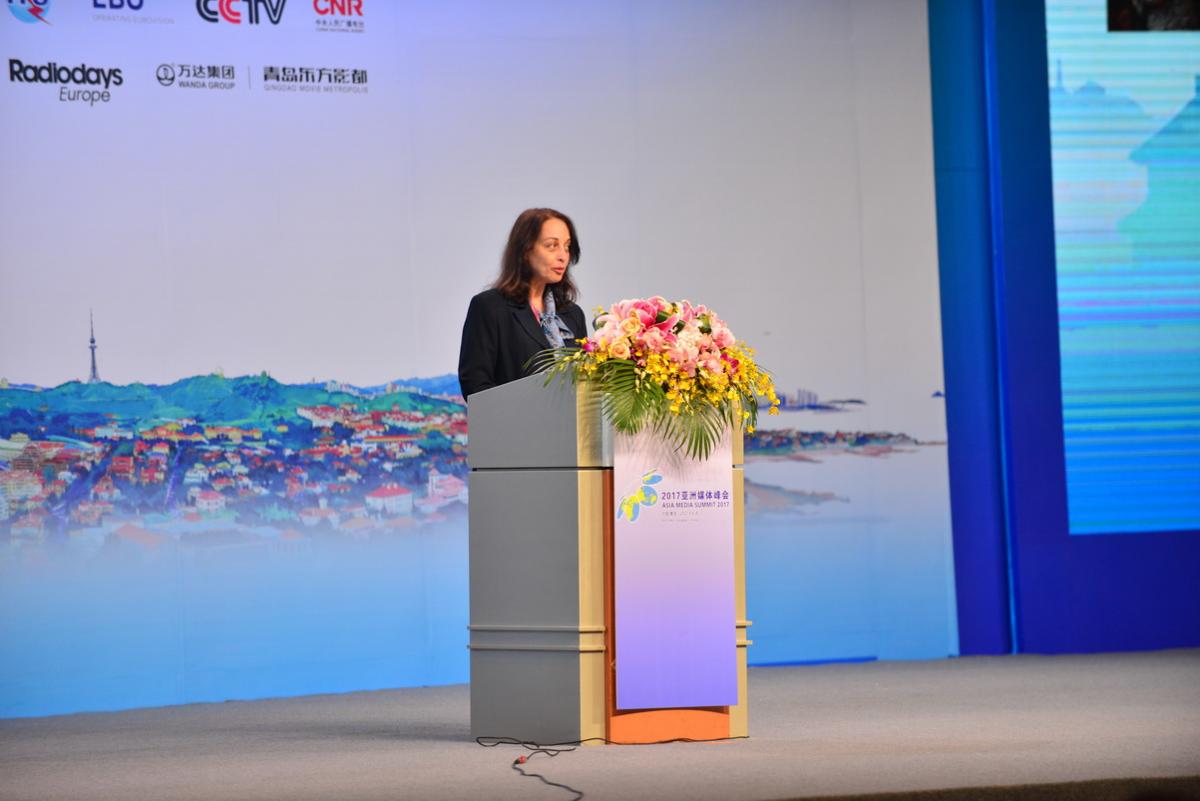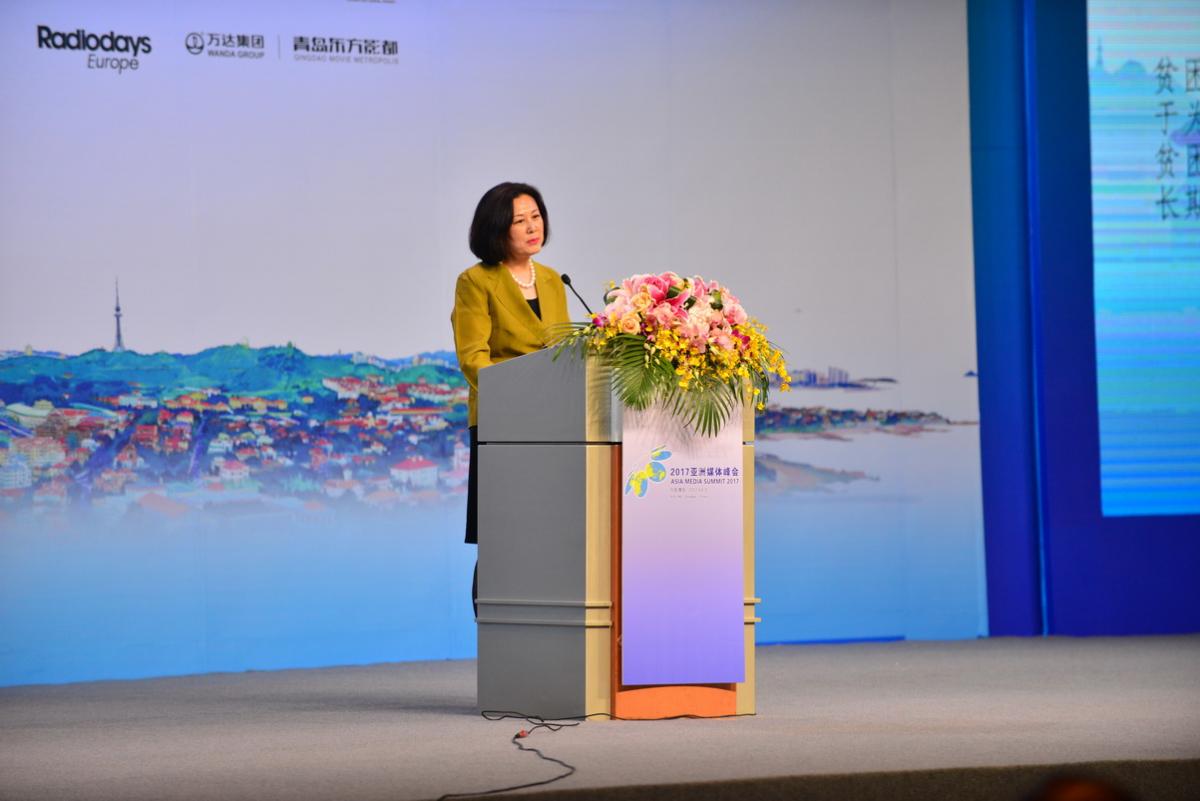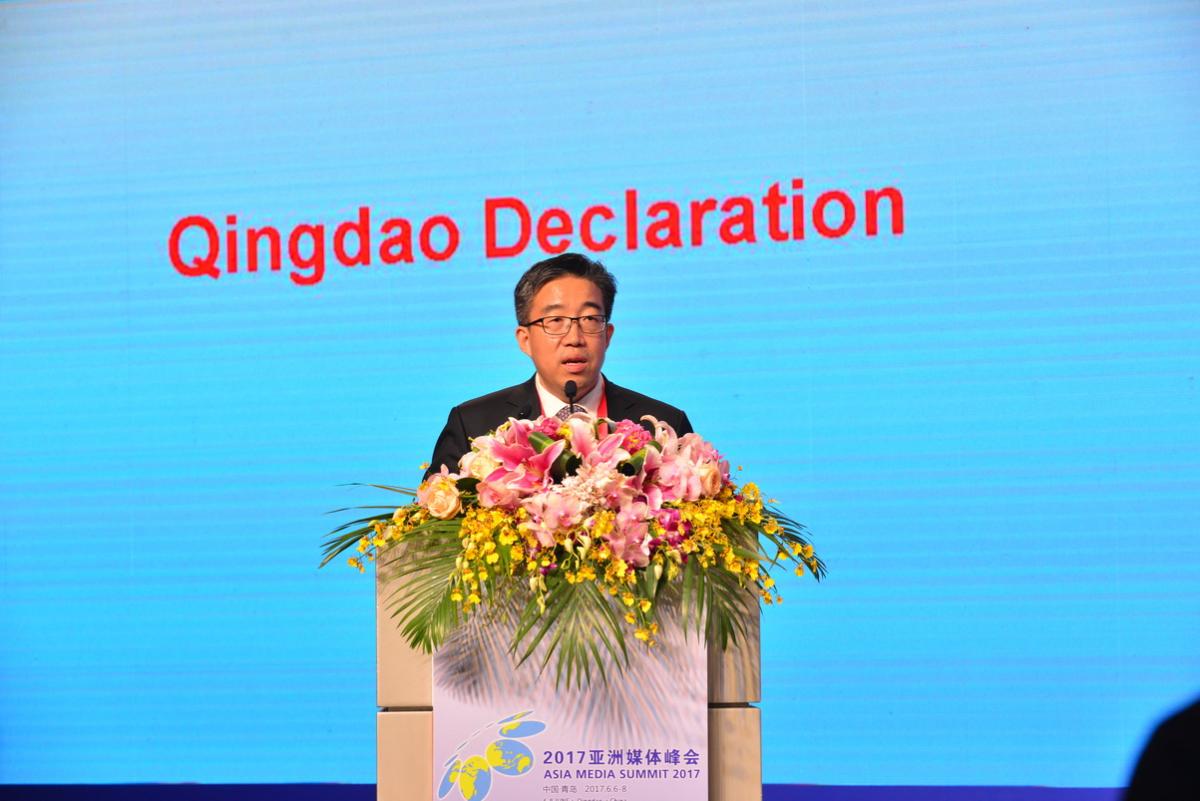The strategic Plan Team (SPT) met recently during the 16th AIBD General Conference in Maldives to discuss, among others, funding sources for AIBD and the Asia Media Summit (AMS).

The Strategic Plan Team (SPT) met recently during the 16th AIBD General Conference in Maldives to discuss, among others, funding sources for AIBD and the Asia Media Summit (AMS).
Concerns were raised over dwindling support from United Nations agencies, and the use of the AMS as a platform for commercial purposes. Some members warned that certain private companies use the AMS as a venue to bring in their own speakers only to sell their products and services. Others argued that development institutions that want to take advantage of the AMS or other AIBD events to promote their advocacies should be allowed to contribute funds. There was a suggestion to sell special sessions and exhibition booths as a way to generate funds for the AMS.
AIBD Director Chang Jin commented that inviting some successful private companies to participate in the AMS makes sense as participants learn some success stories from them. After all, AMS is also a forum for participants to learn. While UNESCO and other UN agencies had contributed resources since the establishment of AIBD, he said funds from these institutions are no longer available now, and AIBD needs to depend on members and other alternative revenue-making mechanisms to ensure its sustainability.
SPT members also discussed a new proposal dealing with the AIBD’s Strategic Plan- Roadmap to 2020. It will update the Strategic Plan crafted in 1998.
Dr Abbas Naseri Taheri, GC President, said there is an urgent need to look at funding to ensure an action plan and roadmap can be implemented. Such plan should be quantified based on a timetable and funding support identified to ensure success.
Also taken up was a proposal for broadcasters to be more pro-active in developing, producing, disseminating and sharing educational content. This includes the creation of a proposed educational content bank as a way to facilitate content exchange among broadcasters, reduce cost of education, and make it accessible in the region.
There were concerns about AIBD’s capacity and resources to handle the setting up of a content bank. It was pointed out that ABU has done a lot in content exchange involving news, sports and music. Mr Chang Jin recalled a Korean proposal during the AMS 2016 to set up an Asian Content Bank, saying AIBD could play at least a small role in supporting and coordinating that effort among government departments and broadcasters in the region. Some members and the AIBD Secretariat had agreed to look into this proposal.
The SPT members also discussed the next Asia Media Summit with the theme “Telling our Stories- Asia and More” and the interim list of proposed activities for 2018/2019 to cover 16 topics for technical training, 36 for programme production and 8 for general training.
During the meeting, Dr Javad Mottaghi, ABU Secretary General and former AIBD Director from 1998 to 2010, spoke about the key role of the SPT in planning for the organization’s strategies in the future. He stressed the need for regular exchange of communication between the SPT members and the AIBD Secretariat in crafting and fine tuning these strategies. Not only must SPT be forward looking in planning, it must also identify ways to make the organization more service-oriented. He reminded members to identify what it can do for AIBD to ensure its operations continue.
Mr Thusira Chintaka Malawwe Thantri, Director General of the Sri Lanka Rupavahini Corporation and SPT Chairman, invited AIBD members to come to Colombo, Sri Lanka for the next General Conference in August 2018.
AIBD’s Strategic Plan Team Discusses Future Directions, Sustainability Issues
The strategic Plan Team (SPT) met recently during the 16th AIBD General Conference in Maldives to discuss, among others, funding sources for AIBD and the Asia Media Summit (AMS).
India Elected as New EXBO Chairman
The 16th General Conference (GC) elected five new members of the AIBD Executive Board (EXBO), headed by India as the new chairman, in its recent gathering in Maldives on 22 August 2017. Elected Vice Chairman was Cambodia.
‘Telling our Stories- Asia and More’
The AIBD announces that the next Asia Media Summit 2018 in New Delhi, India will focus on the theme “Telling our Stories- Asia and More.”
The ABU Secretariat invites applications for the post of DIRECTOR ABU PROGRAMMING
The ABU is seeking to recruit a high-calibre professional as a Director ABU Programming. The present Director ABU Programming will complete his contract with the ABU towards the end of 2017. Applications are therefore being sought to fill this important position.
This is one of the senior positions in the ABU Secretariat, reporting directly to the Secretary-General, and responsible for running all ABU Programming activities.
The statements below reflect the general responsibilities and requirements for the position but may not describe all work requirements inherent to the job
The ABU Secretariat invites applications for the post of DIRECTOR ABU NEWS
The ABU is seeking to recruit a high-calibre professional as a Director ABU News, starting in January 2018. The present Director ABU News will complete his contract with the ABU at the end of this year. Applications are therefore being sought to fill this important position with a view to having the new Director take over the role in January 2018.
This is one of the most senior positions in the ABU Secretariat. The Director ABU News is reporting directly to the Secretary-General, and is responsible for the overall management and supervision of the News Department.
Shaping the Development Agenda
To shape the development media, broadcasters in Asia offered diverse approaches from pursuing investigative pieces, expanding collaboration among media groups, to respecting local sensitivity to reach targeted communities.
Speaking at the Asia Media Summit, Mr Li Bin, Deputy Director of China Global Television Network, English Channel, China, said media must be true, accurate, comprehensive and balanced in reporting development issues.
Media’s Huge Task in the Face of War & Terrorism
As the world faces the ominous phenomenon of war, insecurity and terrorism, media assumes a huge task of promoting peace, friendship, morality and spirituality.
It has the responsibility to “combat any act which seeks to create phobia towards religions.” It also has to “ceaselessly combat injustice as the root cause of terrorism” in different parts of the world, Dr Abdolali Ali Askari, President of AIBD General Conference, and President, Islamic Republic of Iran Broadcasting, said in his welcoming remarks during the opening ceremony of the 14th Asia Media Summit from 6-7 June 2017 in Qingdao, China.UN Calls on Media to Engage Audiences on Development Issues
The United Nations urges broadcasters in Asia Pacific to continue reporting on development issues, including the 17 Sustainable Development Goals (SDGs), while promoting pluralism and diversity of views.
In a message to the 14th Asia Media Summit participants, Amina J. Mohammed, Deputy Secretary General of the United Nations, stressed media’s critical role in engaging and inspiring people, connecting communities, as well as holding governments accountable.UN Calls on Media to Engage Audiences on Development Issues
The United Nations urges broadcasters in Asia Pacific to continue reporting on development issues, including the 17 Sustainable Development Goals (SDGs), while promoting pluralism and diversity of views.
In a message to the 14th Asia Media Summit participants, Amina J. Mohammed, Deputy Secretary General of the United Nations, stressed media’s critical role in engaging and inspiring people, connecting communities, as well as holding governments accountable.Qingdao Declaration on Media and the World’s Sustainable Development Qingdao, China, June 7, 2017
Preamble:
Mindful of the pressing challenges facing our world, among them, poverty, conflict, socioeconomic inequality, environmental degradation and climate change that call for urgent and concerted action to accelerate development and progress in our society;
Noting that there are several creative and innovative mechanisms to achieve sustainable development, appropriate to every country’s own needs, expectations and pace of development, and demanding participation and support from government, private sector, civil society, local communities, families and individuals alike;



